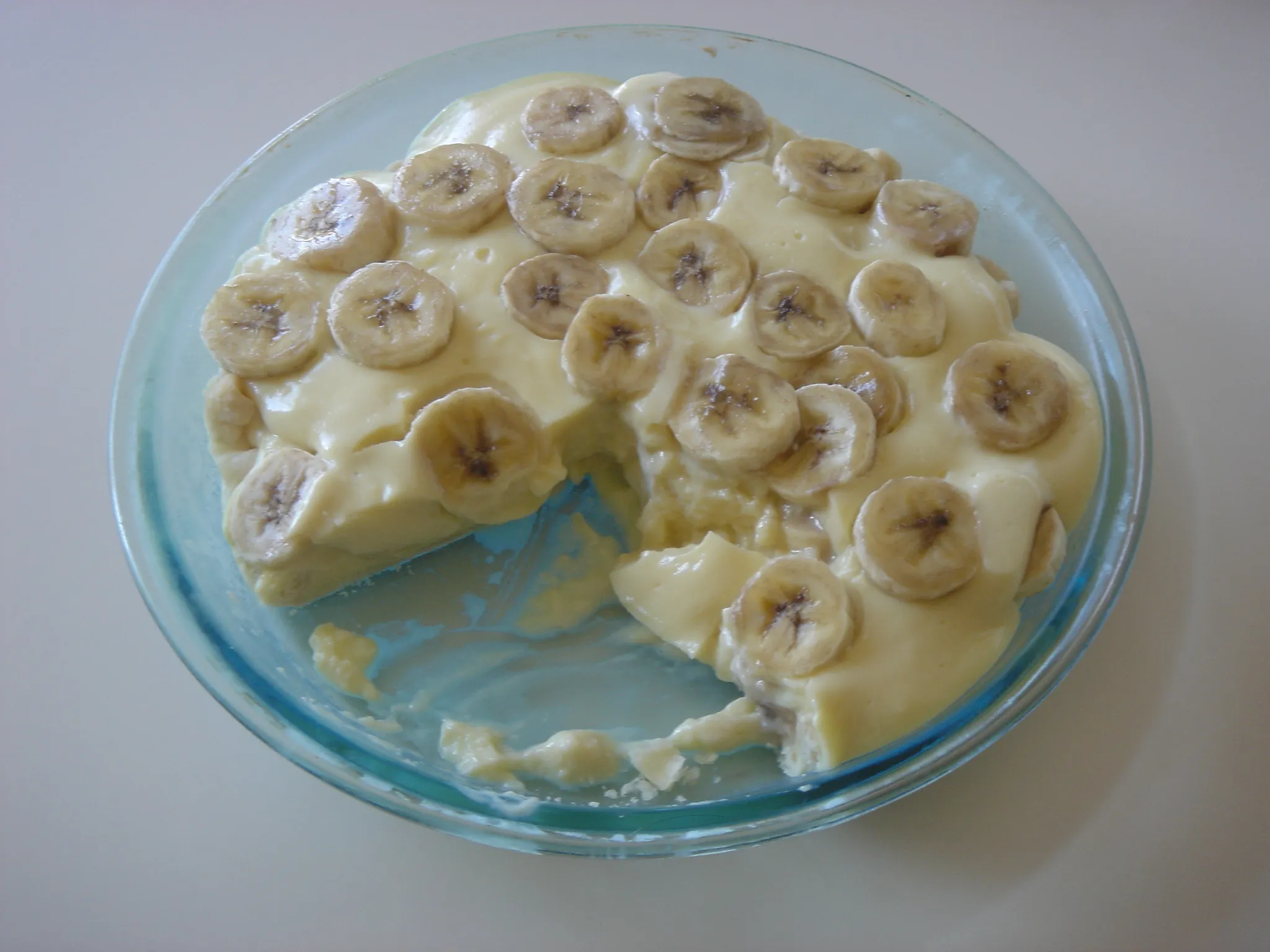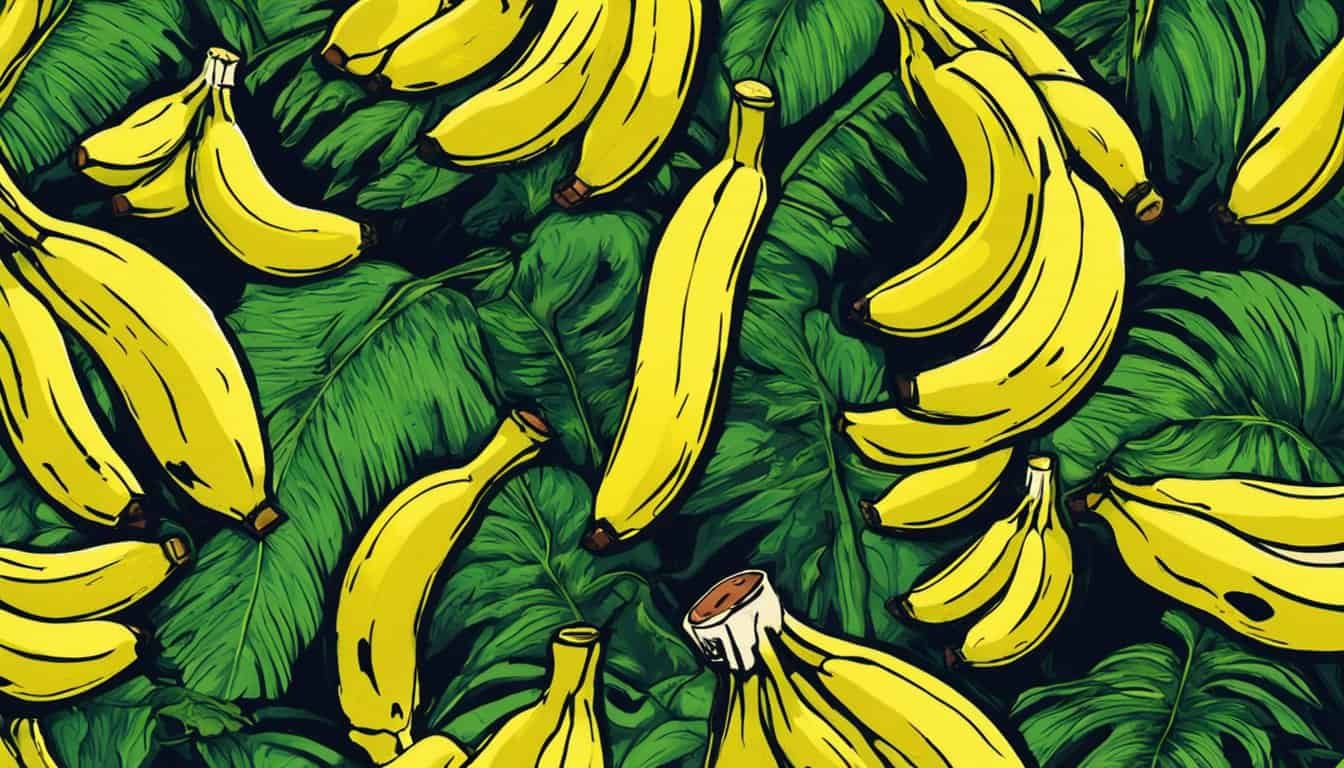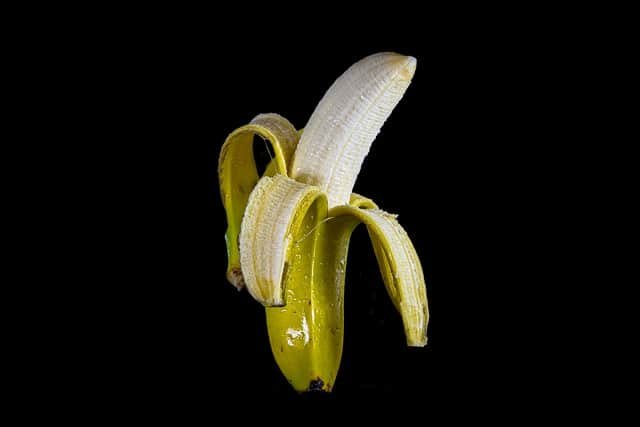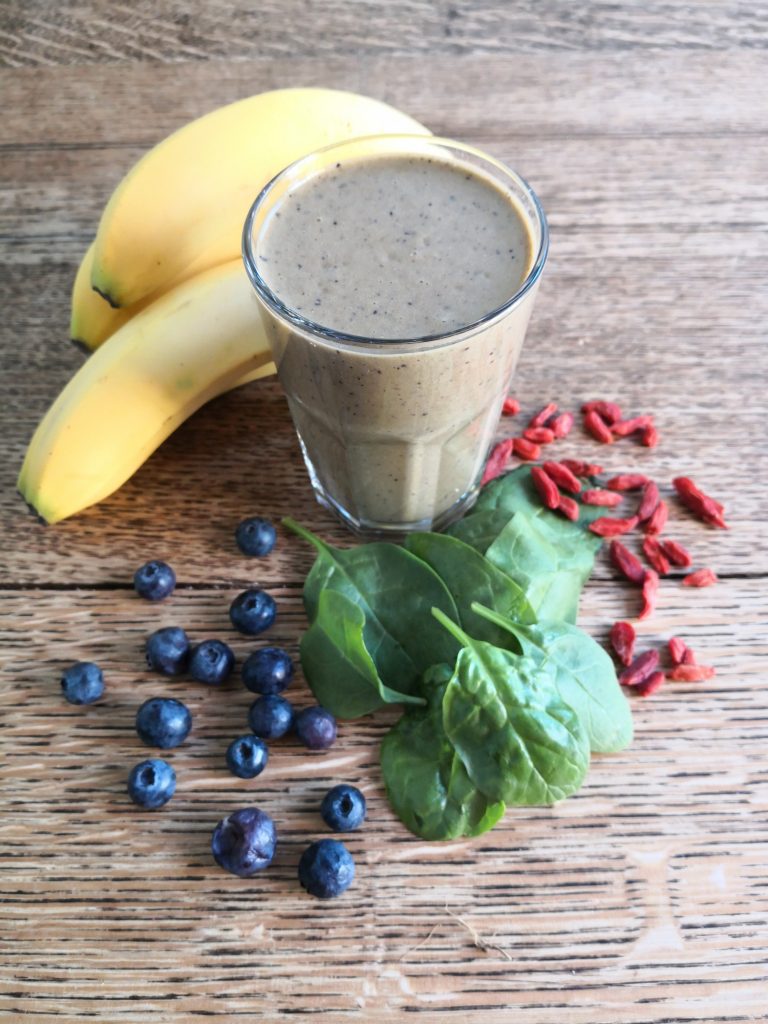
Are you looking for a delicious and nutritious recipe for your little one? Look no further! In this article, we’ll be sharing a fantastic banana egg recipe that is perfect for babies. Packed with essential nutrients and easy to prepare, this recipe is a great way to introduce solid foods to your baby’s diet. Get ready to whip up a tasty treat that your little one will love!
Introducing solid foods to your baby can be an exciting but sometimes challenging journey. That’s why we’re here to help! Our banana egg recipe is a fantastic option for babies who are ready to explore new flavors and textures. With just a few simple ingredients, you can create a nutritious meal that will support your baby’s growth and development. Get ready to embark on a culinary adventure with your little one!
Why Choose a Banana Egg Recipe for Your Baby?

Bananas are not only delicious but also packed with essential nutrients that are beneficial for your baby’s growth and development. When combined with eggs, they create a nutritious and versatile dish that is perfect for introducing solid foods to your little one. Here are a few reasons why choosing a banana egg recipe for your baby is a great decision:
1. Nutrient powerhouse: Bananas are rich in potassium, vitamin C, and dietary fiber, which are important for supporting your baby’s overall health. Eggs, on the other hand, are an excellent source of protein, iron, and vitamin D, which are essential for your baby’s muscle and bone development. By combining these two ingredients, you are providing your baby with a powerhouse of nutrients in one simple dish.
2. Easy to prepare: One of the reasons why a banana egg recipe is so popular among parents is its simplicity. All you need to do is mash a ripe banana, whisk in an egg, and cook it on a lightly greased pan. Within minutes, you’ll have a delicious and nutritious meal ready for your baby.
3. Texture exploration: Introducing new flavors and textures to your baby’s diet is an important part of their food journey. The soft and creamy texture of a banana egg dish allows your baby to explore different sensations as they learn to chew and swallow. This can help develop their oral motor skills and promote self-feeding.
4. Versatile options: The beauty of a banana egg recipe is its versatility. You can easily customize it by adding other ingredients such as cinnamon, vanilla extract, or even small pieces of fruits for added flavor and texture. This allows you to introduce a variety of tastes to your baby and expand their palate.
Health Benefits of Bananas for Babies
Bananas are not only delicious, but they are also packed with essential nutrients that are beneficial for your baby’s health and development. Here are some of the key health benefits of bananas for babies:
1. Nutrient Powerhouse: Bananas are rich in potassium, which is essential for maintaining healthy blood pressure levels and promoting proper heart function. They are also a great source of vitamin C, which helps boost your baby’s immune system and protects against infections. Additionally, bananas contain dietary fiber, which aids in digestion and helps prevent constipation.
2. Energy Booster: Bananas are a fantastic source of natural energy. They are packed with carbohydrates, which provide the necessary fuel for your baby’s growing body. The natural sugars found in bananas are easily digested and converted into energy, making them an ideal snack for active little ones.
3. Brain Development: Bananas contain essential nutrients that support your baby’s brain development. They are rich in vitamin B6, which plays a crucial role in the production of neurotransmitters, the chemicals that facilitate communication between brain cells. This helps promote healthy cognitive function and overall brain health.
4. Bone Health: Bananas are a good source of magnesium, which is essential for strong and healthy bones. Magnesium aids in the absorption of calcium, another vital nutrient for bone development. Including bananas in your baby’s diet can help support proper bone growth and prevent conditions like osteoporosis later in life.

5. Easy to Digest: One of the reasons why bananas are a popular choice for babies is that they are easy to digest. The soft and creamy texture of bananas makes them gentle on your baby’s stomach, reducing the risk of digestive issues. This makes them an excellent option for introducing solid foods to your little one.
Remember, it’s always a good idea to consult with your pediatrician before introducing new foods to your baby’s diet. While bananas are generally safe for most babies, individual allergies and sensitivities can vary. Start by offering mashed or pureed bananas and gradually introduce small pieces as your baby becomes more comfortable with chewing.
Health Benefits of Eggs for Babies
Eggs are not only a delicious and versatile food, but they also offer a wide range of health benefits for babies. Here are some reasons why you should consider incorporating eggs into your baby’s diet:
1. Protein Powerhouse
Eggs are an excellent source of high-quality protein, which is essential for your baby’s growth and development. Protein plays a crucial role in building and repairing tissues, supporting the immune system, and producing enzymes and hormones. Including eggs in your baby’s diet can help ensure they are getting the protein they need to thrive.
2. Iron Boost
Iron is a vital nutrient that babies need for healthy brain development and to prevent iron deficiency anemia. Eggs are a fantastic source of iron, providing a significant amount in a small serving. Iron is necessary for the production of red blood cells, which carry oxygen throughout the body. Including eggs in your baby’s diet can help ensure they are getting enough iron to support their overall health.
3. Vitamin D Delight
Vitamin D is essential for the absorption of calcium and phosphorus, which are crucial for strong bones and teeth. Eggs are one of the few natural food sources of vitamin D, making them an excellent choice for babies. Adequate vitamin D intake is particularly important for babies, as it aids in the development of healthy bones and promotes optimal growth.

4. Brain Boosting
« Delicious Pata Tim Recipe with Banana Blossoms: Enjoy this Traditional Filipino Dish
A Step-by-Step Guide to Making Homemade Banana Ice Cream Using an Ice Cream Maker »
Eggs are rich in choline, a nutrient that plays a vital role in brain development and function. Choline is necessary for the production of acetylcholine, a neurotransmitter that is involved in memory and learning. Including eggs in your baby’s diet can provide them with the choline they need to support their cognitive development.
5. Versatile and Easy to Digest
Eggs are incredibly versatile, allowing you to prepare them in various ways to suit your baby’s taste preferences. From scrambled eggs to omelets and frittatas, there are endless possibilities. Additionally, eggs are easily digestible, making them a gentle food for your baby’s developing digestive system.
Remember, before introducing eggs to your baby, it’s important to consult with a pediatrician, especially if your family has a history of food allergies. However, for most babies, eggs can be a nutritious and delicious addition to their diet.
So go ahead and whip up some eggs for your little one, and watch them enjoy the numerous health benefits
Precautions Before Introducing Bananas and Eggs to Your Baby
When it comes to introducing new foods to your baby’s diet, it’s important to take certain precautions to ensure their safety and well-being. Before you start incorporating bananas and eggs into your little one’s meals, here are a few things to keep in mind:
1. Allergies: Allergies are a common concern when introducing new foods to babies. Both bananas and eggs have the potential to cause allergic reactions, although they are not among the top allergenic foods. It’s always a good idea to consult with your pediatrician before introducing these foods to your baby, especially if there is a family history of food allergies.
2. Age and Development: Babies are typically ready to start solids around 6 months of age. However, every baby is different, so it’s important to watch for signs of readiness, such as being able to sit up with support and showing an interest in food. Introducing bananas and eggs too early may increase the risk of digestive issues or allergies.
3. Texture and Consistency: When introducing solid foods, it’s important to start with smooth and pureed textures. For bananas, you can mash them thoroughly or blend them with breast milk or formula to create a smooth puree. Eggs can be cooked until they are fully cooked and mashed or pureed to ensure a safe and appropriate texture for your baby.
4. Introducing One Food at a Time: To identify any potential allergies or digestive issues, it’s recommended to introduce one new food at a time and wait for a few days before introducing another. This way, if your baby has a reaction, you can easily identify the culprit.

Remember, every baby is unique, and it’s essential to follow your pediatrician’s guidance when introducing new foods. By taking these precautions, you can ensure a smooth and safe transition to solid foods for your little one.
Tips for Preparing a Banana Egg Recipe for Your Baby
If you’re looking to introduce solid foods to your baby’s diet, a banana egg recipe is a fantastic option. Not only is it easy to prepare, but it’s also packed with essential nutrients that support your baby’s growth and development. Plus, it’s a fun way to explore new flavors and textures!
Here are some tips to help you prepare a delicious banana egg dish for your little one:
- Choose ripe bananas: Opt for bananas that are fully ripe and have a yellow peel with brown spots. Ripe bananas are softer and easier to mash, making them perfect for your baby’s delicate gums.
- Use organic ingredients: Whenever possible, choose organic bananas and eggs. Organic produce is free from pesticides and other harmful chemicals, ensuring that your baby receives the best possible nutrition.
- Mash the bananas: Start by peeling the bananas and mashing them with a fork or potato masher. You can make the consistency as smooth or chunky as your baby prefers. This will allow them to explore different textures and promote self-feeding and oral motor skills.
- Add a beaten egg: Crack an egg into a separate bowl and beat it well. Then, add the beaten egg to the mashed bananas and mix thoroughly. Eggs are a great source of protein, iron, and vitamin D, which are essential for your baby’s growth.
- Cook the mixture: Heat a non-stick pan over medium heat and lightly grease it with a little butter or oil. Pour the banana egg mixture into the pan and cook it for a few minutes on each side until it’s lightly browned and cooked through.
- Allow it to cool: Once the banana egg dish is cooked, let it cool down before serving it to your baby. This will not only prevent any potential burns but will also allow your baby to enjoy it at a safe temperature.
Remember, before introducing bananas and eggs to your baby’s diet, it’s important to take precautions. Consult with your pediatrician, especially if your baby has any known allergies. Consider your baby’s age and development, as well as the texture and consistency of the dish. It’s also a good idea to introduce one food at a time, waiting a few days before introducing another new food.
By following these tips, you can ensure a smooth and safe transition to solid foods for your little one. So go ahead and give this nutritious banana
Simple Banana Egg Recipe for Babies

If you’re looking for a delicious and nutritious meal for your little one, look no further than a simple banana egg recipe. Bananas are not only tasty, but they also offer a host of health benefits for your baby. Paired with eggs, which are packed with essential nutrients, this recipe is a winning combination.
To make this recipe, all you need are bananas and eggs. It’s quick, easy, and perfect for busy parents. Here’s how you can prepare it:
- Start by mashing a ripe banana in a bowl until it reaches a smooth consistency.
- In a separate bowl, beat an egg until well scrambled.
- Add the scrambled egg to the mashed banana and mix them together until well combined.
- Heat a non-stick pan over medium heat and lightly grease it with a small amount of cooking oil or butter.
- Pour the banana and egg mixture onto the pan and cook it for about 2-3 minutes on each side, or until golden brown.
- Once cooked, allow the dish to cool before serving it to your baby.
This simple banana egg recipe is not only tasty but also offers a variety of benefits for your little one. Bananas are packed with essential vitamins and minerals, such as potassium and vitamin C, which are important for your baby’s growth and development. Eggs, on the other hand, are a great source of protein, which is crucial for building strong muscles and supporting overall growth.
It’s important to note that before introducing this recipe to your baby, it’s always a good idea to consult with your pediatrician. They can provide guidance on when to start introducing solid foods, as well as any specific dietary considerations for your baby’s age and development.
Remember, every baby is unique, and it’s important to consider your baby’s individual needs and preferences when introducing new foods. Start with small amounts and gradually increase the portion sizes as your baby becomes more comfortable with the taste and texture.
Variations of the Banana Egg Recipe for Babies

If you’re looking to introduce new flavors and textures to your baby’s diet, variations of the banana egg recipe can be a great way to do so. Here are a few ideas to keep things interesting:
1. Banana Egg Pancakes: Instead of simply blending the banana and egg together, you can create fluffy pancakes by adding a little bit of flour and baking powder to the mix. This gives the dish a light and airy texture that your little one will surely enjoy. Plus, it’s a fun way to introduce the concept of pancakes to your baby!
2. Banana Egg Muffins: Another delicious variation is to bake the banana egg mixture into muffins. You can add some oats, a pinch of cinnamon, and even a handful of blueberries for added flavor and nutrients. These muffins make for a convenient and portable snack for your baby.
3. Banana Egg Oatmeal: If you’re looking to incorporate more grains into your baby’s diet, try combining the banana and egg mixture with cooked oatmeal. This creates a creamy and nutritious breakfast option that will keep your little one full and satisfied.
4. Banana Egg Smoothie: For a refreshing twist, blend the banana and egg with some yogurt and your baby’s favorite fruits to create a nutritious smoothie. This variation is perfect for introducing new fruits into your baby’s diet and can be served as a snack or even a light meal.

Remember, as you explore these variations, it’s important to consider your baby’s age, development, and any potential allergies. Always consult with your pediatrician before introducing new foods to your baby’s diet.
By offering different variations of the banana egg recipe, you can expose your baby to a wide array of flavors, textures, and nutrients. It’s a fantastic way to encourage healthy eating habits and support their growth and development.
Frequently asked questions about banana egg recipe for babies
As an expert on bananas, I understand that you may have some questions about introducing a banana egg recipe to your baby. Here are answers to some frequently asked questions to help you make an informed decision:
Q: When can I start giving my baby a banana egg recipe?
A: It is generally recommended to introduce solid foods, including bananas and eggs, to your baby around 6 months of age. However, every baby is different, so it’s important to consult with your pediatrician to determine if your baby is ready for these foods.
Q: Are bananas and eggs safe for my baby?
A: Yes, both bananas and eggs are considered safe for babies, as long as there are no allergies or contraindications. Bananas are easy to digest and provide essential nutrients like potassium and vitamin C. Eggs, on the other hand, are a great source of protein and essential vitamins and minerals.
Q: Can I use other variations of the banana egg recipe?

A: Absolutely! The banana egg recipe is versatile and can be adapted to introduce new flavors and textures to your baby’s diet. You can try making pancakes, muffins, oatmeal, or even smoothies using bananas and eggs. Just make sure to adjust the recipe to suit your baby’s age and development.
Q: How can I ensure the recipe is suitable for my baby’s texture and consistency needs?
A: Texture and consistency are important considerations when introducing new foods to your baby. For younger babies, you can mash the bananas and mix them with a well-beaten egg to create a smooth puree. As your baby grows, you can gradually increase the texture by mashing the bananas with a fork or introducing small chunks of banana.
Remember, it’s always best to consult with your pediatrician before introducing any new foods to your baby’s diet. They can provide personalized guidance based on your baby’s specific needs and ensure a safe and enjoyable culinary journey for your little one.
Conclusion
Now that you have learned about the benefits of incorporating a banana egg recipe into your baby’s diet, you can confidently introduce this nutritious dish to your little one. By starting with simple mashed bananas and eggs, you can provide a wholesome meal that is packed with essential nutrients.
Remember, variety is key in a baby’s diet, so don’t be afraid to get creative with this recipe. You can try making banana egg pancakes, muffins, oatmeal, or even smoothies to introduce new flavors and textures. Just make sure to adjust the recipe based on your baby’s age and preferences.

While bananas and eggs are generally safe for babies, it’s always a good idea to consult with your pediatrician before introducing any new foods. They can provide personalized guidance and ensure that your baby’s diet is appropriate for their age and development.
So go ahead and give this banana egg recipe a try! Your little one will not only enjoy the delicious taste but also benefit from the nutritional goodness of these wholesome ingredients. Happy cooking!










